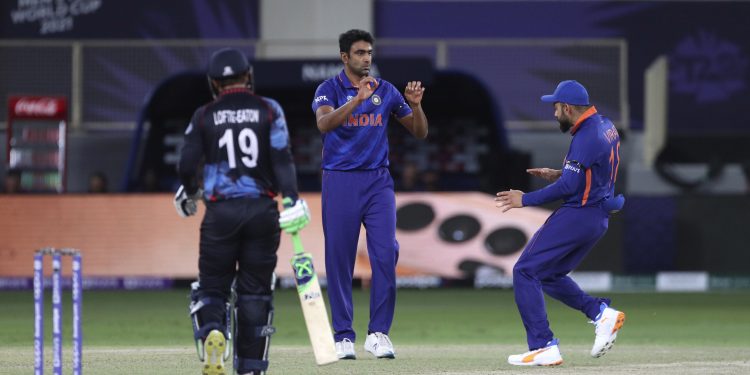New Delhi: Senior India spinner Ravichandran Ashwin feels matches of the ODI World Cup at home later this year should begin earlier in the day to reduce the effect of dew factor.
Dew has affected matches in the subcontinent for the longest time, providing the teams chasing an unfair edge. The prospect of the dew effectively means the captain winning the toss decides to field.
“My suggestion – or rather my opinion – for the World Cup is to look at what venues we are playing in, and at what times. Why shouldn’t we start matches at 11.30 am during the World Cup?” Ashwin said on his YouTube channel.
In India, day-night ODIs begin at 1:30 pm and go well into primetime.
The 36-year-old off-spinner feels the difference between the qualities of teams is not visible because of the dew. He gave the example of the first ODI between India and Sri Lanka to prove his point.
Batting first, India had scored 373 for 7 while Sri Lanka had managed 306 for 8.
However, Ashwin opined that the victory margin was not reflective of the Indian team’s dominance in the match.
“India batted beautifully on a slow wicket and posted a score well above par. Still, they ended up having to fight tooth and nail,” he said.
“The quality difference between the teams isn’t coming through – dew is narrowing that gap if you happen to lose the toss.”
Despite dew playing such a huge role in the outcome of games in India, the match timings are primarily adjusted to suit television viewership in the Indian sub-continent.
“People will bring up television viewers and broadcasters, and say that people won’t latch on and watch at that time, but would they not latch on to World Cup matches?”
“The recent T20 World Cup was also held in winter, prioritising the summer (for Australia’s home bilateral season),” Ashwin said.
“It wasn’t the ideal scenario – T20 is a fast-paced game, how can you play it in winter? People will say that’s not the case in Australia, but still, we need to prioritise World Cups.”
The 50-over World Cup is scheduled to be played in October-November in India, dew would be a common occurrence and as the tournament goes on, its impact would grow further.
“The ICC knows very well that there will be dew, so let’s advance the game, and if we start at 11.30 am, the dew factor won’t come into the game, and why not?
“Won’t all cricket fans prioritise the World Cup and watch matches at 11.30?”
Ashwin added that teams are preparing for dew ahead of the World Cup.
“ECB recently invited applications for the analyst’s position, and – I came to know this through some analysts I know – one of the important questions they asked was, ‘How big a factor is dew in Indian conditions in white-ball cricket?’
“They’re looking to bring in the best analytical tools possible ahead of the 2023 World Cup, and they’ve asked all the pertinent questions, so you can see how crucial everyone in world cricket thinks the dew factor is in Indian conditions,” he said.
PTI






































